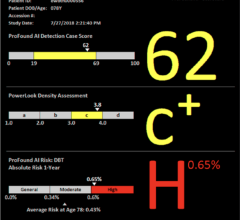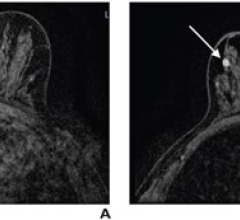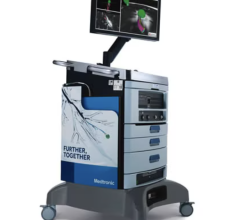
January 25, 2017 — HealthDecision LLC recently announced the launch of the Breast Cancer Screening tool. This tool provides patients a personalized risk analysis for developing breast cancer in the next 10 years and the benefits or harms associated with mammogram screening.
The tool was tested and currently is used within University of Wisconsin (UW) Health, a healthcare system in the upper Midwest serving 600,000 patients each year with 1,400 physicians and 16,500 staff at six hospitals and 80 outpatient sites.
The Breast Cancer Screening tool is the result of a 2013 WI Partnership Program grant received by the UW Madison Department of Radiology and a joint effort with HealthDecision LLC to create a shared decision-making (SDM) tool that could be used at a routine appointment within a doctor's office. The project grew out of the controversy and confusion about breast cancer screening, and its multidisciplinary team included members from surgery, engineering, psychology, communications, primary care, vascular surgery research and decision making.
HealthDecision is unique in that it is embedded within the electronic health record (EHR) system and considers the patient's healthcare data and history to calculate personalized risk. Risks associated with mammogram screening include over-detection and the subsequent effects of anxiety; possible overtreatment with surgery, radiotherapy and sometimes chemotherapy; cost; and additional impacts on quality of life.
"Healthcare guidelines can be confusing to patients as well as doctors, especially when there is conflicting information in the public domain," said Sarina Schrager, M.D., UW Health and professor in the University of Wisconsin Department of Family Medicine and Community Health. Along with Beth Burnside, M.D., UW Health, who was the principle investigator on the grant, Schrager was heavily involved in the development of the tool, educating other primary care clinicians and driving the implementation strategy within UW Health primary care. "HealthDecision aids my conversation with the patient to better educate and explain the harms and benefits of a mammogram and its possible outcomes. The visualized risk analysis has been key for patients to better understand their personalized risk and increases their confidence to make better informed healthcare decisions for themselves."
The Breast Cancer Screening tool joins a suite of three other HealthDecision shared decision-making tools that provide a patient's personalized risk for the various healthcare options available:
- The Atrial Fibrillation tool demonstrates a patient's risk of stroke or bleeding from anticoagulant medications;
- The Cardiovascular Risk tool evaluates a patient's cholesterol and their risk of various statin medications and smoking cessation; and
- The Lung Cancer Screening tool considers the risk for chest computed tomography (CT) scans for patients who smoke or have smoked.
For more information: www.healthdecision.org


 July 17, 2024
July 17, 2024 








